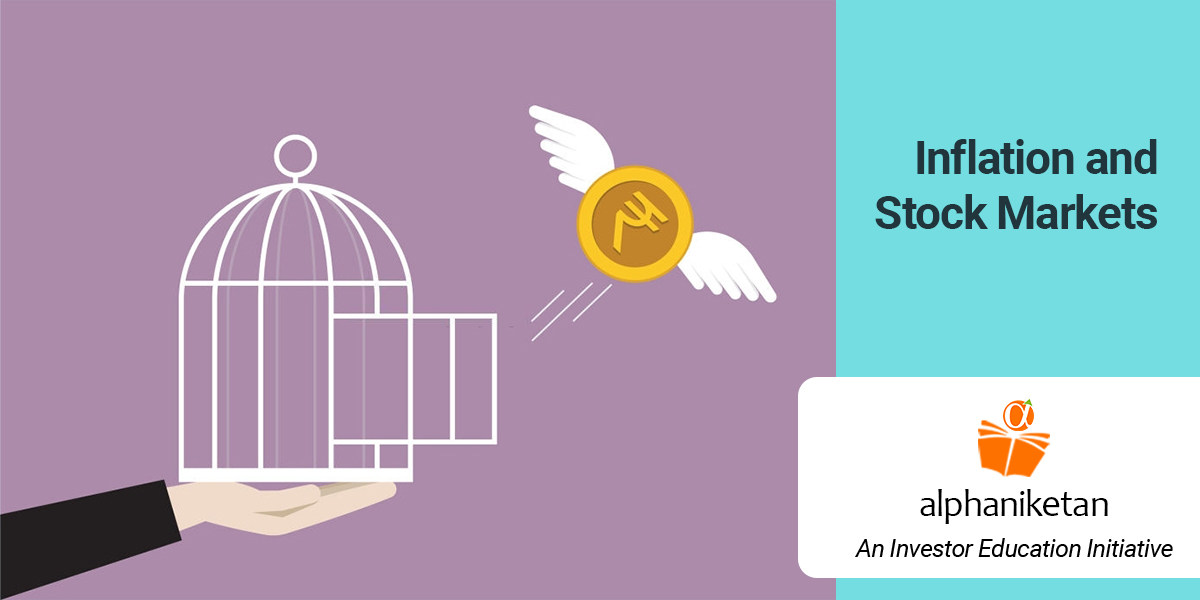When important government institutions announce critical decisions, one has to go beyond the obvious implications of those decisions. This is clearly evident in financial markets. When central bankers worldwide almost unanimously cut policy interest rates and infused liquidity in financial markets to revive economic growth, there was a critical outcome which prudent investors and observers had to bear in mind: Inflation. The resultant impact simply can’t be ignored. Increasing supply of liquidity and loose monetary policies globally ensured rapid resumption of asset prices and economic activity. But the increase in money supply also creates a real inflation challenge.
For the uninitiated, when the money supply in the economy goes up along with very low interest rates, this liquidity finds it way into various asset classes. To protect the purchasing power of money, investors start chasing risk assets such as real estate, commodities and stocks. As more and more people chase such asset classes – the supply of which is finite in the short term, leads to a sharp rise in prices. This price rise then spreads like a wildfire in other goods and services. For example, many commodities are used as inputs in manufacturing and service industries. And businesses have no option but to pass on these cost pressures via price hikes to end consumers. This general increase in price levels is termed as inflation.
Since inflation affects the savers adversely, savers demand to be compensated in the form of higher interest rates. Though short-term interest rates are determined by the liquidity in the financial system and policy rates by central bankers, long-term interest rates are determined by two factors: One being inflation expectations and the other supply of bonds (led by higher government borrowing to support rising government expenditure to jump start the economy). High interest rates in the backdrop of high expected inflation can wipe out profits of companies with leveraged balance-sheets. It also curbs the demand for goods as consumers may find it burdensome to borrow for personal consumption.
Inflation ultimately also eats into the purchasing power of individuals and severely impacts the demand from individuals with stagnating or low income base. This ultimately leads to overall lower demand for goods and services. Hence consumer goods and services companies may suffer a lot if inflation runs higher. Other things remaining the same, high persistent inflationary pressures (as witnessed between 2010-13) are typically detrimental for stock markets. First the general increase in prices pulls down the demand in the economy. This leads to less than expected growth in revenues of companies. Second, inflation also eats into the margins of the company. If the input prices keep going up, but companies struggle to pass on cost pressures via price hikes, then the profit margins of companies shrink and so do earnings. Lower growth in earnings or earnings de-growth may lead to weaker stock prices.
However, inflation is not an unwanted nuisance. In the short-term, though inflation elevates bond yields,. This may result in a temporary lull in stock market performance. However, if the economy continues to do well, consumer demand thrives with rising income levels and there is a rise in overall investment activity to keep pace with this rising demand. This demand pull leads to healthy overall growth in the economy and ideally keeps inflation healthy enough to induce confidence in both businesses as well as consumers. Such benign inflation in medium to long term is ultimately conducive for stock prices. On the other hand, falling prices – deflation is seen as an indicator of economic de-growth. When the economy is shrinking the prices fall with demand destruction and also pulls down corporate profits, thereby adversely impacting stock prices.
To put it simply, when inflation is too low (or absence of inflation) or too high, it is a problematic situation from the point of market sentiment. Hence, it is important that long-term investors must keep monitoring movements in inflation and observe central bank actions to anchor forward inflation expectations.
Thank you for reading this post, don't forget to subscribe!





Pingback: Inflation and Stock Markets – Alphaniketan - FinMedium